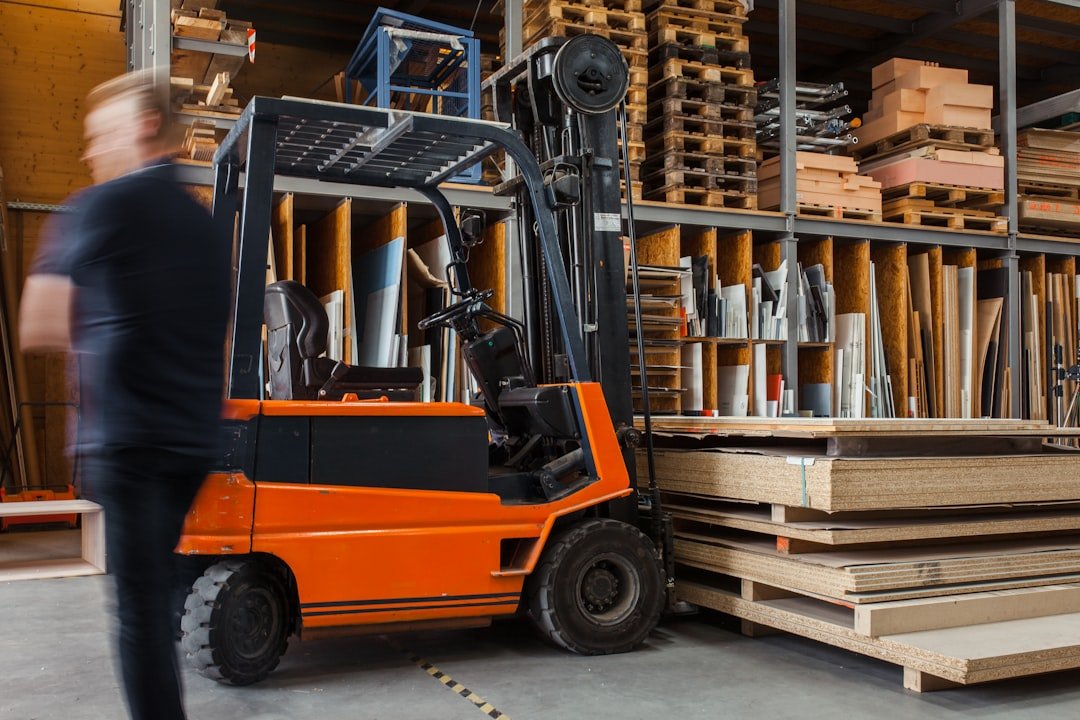How to Start an Amazon Wholesale Selling Business from Home

The Amazon wholesale model is a business strategy where sellers purchase products in bulk from manufacturers or distributors and then resell them on the Amazon platform. This model allows sellers to take advantage of the massive customer base and infrastructure that Amazon provides, while also benefiting from the economies of scale that come with buying in bulk. By purchasing products at wholesale prices and selling them at a markup, sellers can generate a profit while also providing customers with a wide range of products to choose from.
One of the key advantages of the Amazon wholesale model is the ability to leverage Amazon’s fulfillment services. By using Fulfillment by Amazon (FBA), sellers can store their inventory in Amazon’s warehouses and have the company handle the packing, shipping, and customer service for their products. This allows sellers to focus on sourcing and selling products, while Amazon takes care of the logistics. Additionally, the Amazon platform provides a high level of visibility and credibility for sellers, as customers trust the Amazon brand and are more likely to make purchases from the site. Overall, the Amazon wholesale model offers a streamlined and efficient way for sellers to reach a large audience and generate profits.
Key Takeaways
- The Amazon wholesale model involves purchasing products in bulk from suppliers and selling them on Amazon for a profit.
- Research and identify profitable products by analyzing demand, competition, and potential profit margins.
- Set up your Amazon seller account by providing necessary information, verifying your identity, and choosing a selling plan.
- Find reliable wholesale suppliers by attending trade shows, networking with other sellers, and conducting thorough background checks.
- Create a business plan and budget to outline your goals, expenses, and projected revenue for your wholesale business.
- List and sell your products on Amazon by creating high-quality product listings, optimizing keywords, and providing excellent customer service.
- Scale and grow your wholesale business by reinvesting profits, expanding your product line, and exploring new sales channels.
Researching and Identifying Profitable Products
Before diving into the Amazon wholesale business, it’s crucial to conduct thorough research to identify profitable products to sell. This involves analyzing market trends, customer demand, and competition to determine which products have the potential to generate high sales and profits. One effective strategy for product research is to use Amazon’s own data to identify popular and best-selling products within specific categories. By using tools such as Jungle Scout or Helium 10, sellers can gain insights into product rankings, sales volume, and customer reviews to gauge demand and competition for various products.
Another important aspect of product research is understanding the profit margins for different products. Sellers should consider factors such as wholesale prices, shipping costs, Amazon fees, and potential marketing expenses to calculate the potential profitability of selling specific products. Additionally, it’s essential to consider the seasonality of products and how trends may impact sales throughout the year. By conducting thorough product research, sellers can identify profitable opportunities within the Amazon marketplace and make informed decisions about which products to source and sell.
Setting Up Your Amazon Seller Account
Once sellers have identified profitable products and are ready to start their wholesale business on Amazon, the next step is to set up an Amazon seller account. There are two main types of seller accounts on Amazon: Individual and Professional. Individual accounts are suitable for sellers who plan to sell fewer than 40 items per month, while Professional accounts are designed for high-volume sellers who plan to sell more than 40 items per month. To set up a seller account, sellers will need to provide basic information about their business, including contact details, bank account information, and tax identification numbers.
After setting up the seller account, sellers can create product listings for their inventory and start selling on the Amazon platform. It’s important to optimize product listings with high-quality images, detailed descriptions, and competitive pricing to attract customers and drive sales. Additionally, sellers should familiarize themselves with Amazon’s seller policies and guidelines to ensure compliance with the platform’s rules and regulations. By setting up a professional seller account and creating compelling product listings, sellers can establish a strong presence on Amazon and start generating sales for their wholesale business.
Finding Reliable Wholesale Suppliers
Finding reliable wholesale suppliers is a critical aspect of the Amazon wholesale business. Sellers need to establish relationships with reputable suppliers who can provide high-quality products at competitive prices. One effective way to find wholesale suppliers is by attending trade shows and industry events where sellers can connect with manufacturers and distributors in person. These events provide an opportunity to network with potential suppliers, view product samples, and negotiate pricing and terms for wholesale purchases.
Another method for finding wholesale suppliers is by using online supplier directories and marketplaces such as Alibaba, ThomasNet, or SaleHoo. These platforms allow sellers to search for suppliers based on specific criteria such as product category, location, and minimum order quantities. By conducting due diligence and vetting potential suppliers, sellers can ensure that they are partnering with reliable and trustworthy companies that can meet their inventory needs.
Additionally, some sellers may choose to work with sourcing agents or third-party logistics providers who can help facilitate the sourcing and procurement process. These professionals have expertise in negotiating with suppliers, managing logistics, and ensuring quality control for products. By finding reliable wholesale suppliers, sellers can secure a steady and consistent supply of inventory for their Amazon wholesale business.
Creating a Business Plan and Budget
Before launching an Amazon wholesale business, it’s essential to create a comprehensive business plan and budget to guide the operations and financial management of the business. A business plan should outline the goals, target market, competitive analysis, marketing strategy, and financial projections for the wholesale business. This document serves as a roadmap for the business and helps align stakeholders on the vision and direction of the company.
In addition to a business plan, sellers should also create a detailed budget that outlines the expected expenses and revenue projections for the wholesale business. This budget should include costs such as inventory purchases, Amazon fees, marketing expenses, shipping costs, and overhead expenses. By forecasting revenue and expenses, sellers can gain a clear understanding of the financial requirements for running their wholesale business on Amazon.
Furthermore, it’s important to consider factors such as cash flow management, working capital needs, and potential financing options to support the growth and sustainability of the business. By creating a solid business plan and budget, sellers can make informed decisions about resource allocation, investment opportunities, and strategic initiatives to drive success in their Amazon wholesale business.
Listing and Selling Your Products on Amazon

Once sellers have established relationships with wholesale suppliers and set up their seller account on Amazon, the next step is to list their products and start selling on the platform. Creating compelling product listings is crucial for attracting customers and driving sales. Sellers should optimize their listings with high-quality images, detailed descriptions, competitive pricing, and relevant keywords to improve visibility and conversion rates.
In addition to creating product listings, sellers should also consider implementing marketing strategies to promote their products on Amazon. This may include running sponsored product ads, offering promotions or discounts, and optimizing product visibility through Amazon SEO techniques. By leveraging these marketing tactics, sellers can increase product visibility, attract more customers, and drive sales for their wholesale business.
Furthermore, sellers should monitor their sales performance and customer feedback to identify areas for improvement and optimization. By analyzing sales data and customer reviews, sellers can gain insights into customer preferences, market trends, and competitive dynamics to refine their product offerings and enhance their sales strategy on Amazon.
Scaling and Growing Your Wholesale Business
As sellers gain traction in their Amazon wholesale business, they may consider scaling and expanding their operations to drive growth and profitability. One strategy for scaling the wholesale business is by diversifying product offerings to cater to a broader range of customer needs and preferences. By expanding into new product categories or introducing complementary products, sellers can capture additional market share and increase sales opportunities on Amazon.
Another approach for scaling the wholesale business is by optimizing operational efficiency and logistics management. This may involve streamlining inventory management processes, improving order fulfillment operations, or leveraging technology solutions such as inventory management software or order management systems. By enhancing operational efficiency, sellers can reduce costs, improve customer satisfaction, and position their business for sustainable growth.
Furthermore, sellers may explore opportunities for international expansion by selling on Amazon’s global marketplaces or exploring cross-border trade opportunities. By tapping into new markets and reaching international customers, sellers can diversify their revenue streams and capitalize on global e-commerce trends.
In conclusion, the Amazon wholesale model offers a lucrative opportunity for entrepreneurs to build a successful e-commerce business by leveraging the power of the Amazon platform. By understanding the key aspects of this business model such as product research, supplier relationships, operational management, and growth strategies, sellers can position themselves for success in the competitive e-commerce landscape. With careful planning, strategic execution, and continuous innovation, entrepreneurs can build a thriving wholesale business on Amazon that delivers value to customers while generating sustainable profits for the long term.
If you’re interested in learning more about starting a business from home, you should check out this article on howtostart.digital. It provides valuable insights and tips on how to launch a successful home-based business. Whether you’re considering Amazon wholesale selling or any other venture, this article offers practical advice for getting started and achieving success.
FAQs
What is Amazon wholesale selling?
Amazon wholesale selling is the process of purchasing products in bulk from manufacturers or distributors and then selling them on Amazon’s platform at a higher price to make a profit.
How do I start an Amazon wholesale selling business from home?
To start an Amazon wholesale selling business from home, you will need to research and select a niche, find reliable wholesale suppliers, create an Amazon seller account, list your products, and manage your inventory and orders.
What are the benefits of starting an Amazon wholesale selling business from home?
Starting an Amazon wholesale selling business from home allows you to have a flexible work schedule, low overhead costs, and the potential for high-profit margins.
What are the challenges of starting an Amazon wholesale selling business from home?
Challenges of starting an Amazon wholesale selling business from home may include finding reliable suppliers, managing inventory and orders, dealing with competition, and staying updated with Amazon’s policies and regulations.
Do I need any special permits or licenses to start an Amazon wholesale selling business from home?
Depending on your location and the products you plan to sell, you may need to obtain a business license, sales tax permit, or other permits and licenses to legally operate an Amazon wholesale selling business from home.
What are some tips for success in starting an Amazon wholesale selling business from home?
Some tips for success in starting an Amazon wholesale selling business from home include conducting thorough market research, building strong relationships with suppliers, providing excellent customer service, and staying organized with your inventory and finances.




